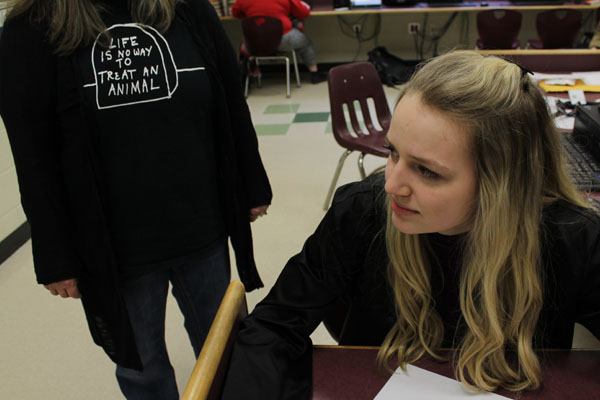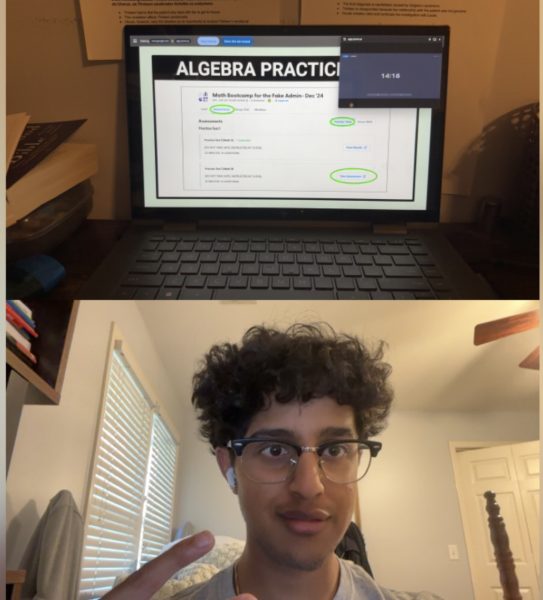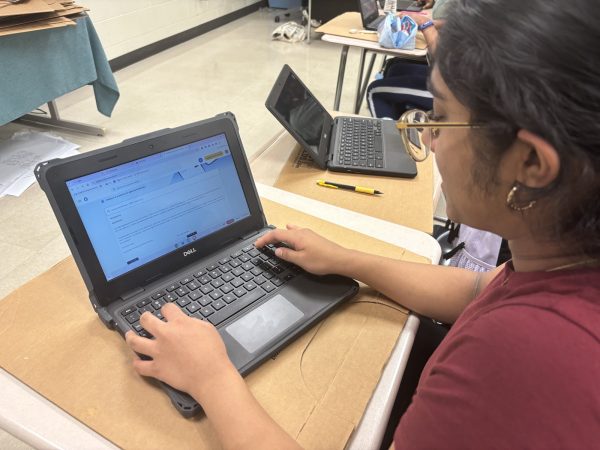When does parental pressure become too much?

Regardless if the intentions are noble, pressures placed upon students can be damaging to both their current well-being and impending plans.
Parental pressure has the ability to radically influence career and/or education decisions of adolescents. The role that a parent or guardian takes on is vital while his or her child is in the process of making life altering decisions, such as choosing the right college. It is necessary for children to have a parental influence in their life, in order to look out for them and make sure they are not astronomically ruining their life. However, when a parent’s input trumps that of the student, the student’s path in life is no longer their own. Moderation is key.
“My parents continue to support and push me through difficult times at school, and this motivates me to continue to work my hardest. However, my parents have recently decided to take a back seat, for I end up putting more pressure on myself than they do together. This led them to trust me to make my own decisions with where I want to go with my education and career”, stated Lambert Post staff writer, Shreya Desai.
Desai’s parents, among various others, have grown to recognize her aptitude to make her own decisions, specifically in regards to Desai’s individual education. Her parents have learned to balance their input both as advisers and parents, encouraging her to do her best, but also functioning as a back bone of support, rather than dictating her decisions. She contributed to this newfound freedom by demonstrating her ability to handle the vigorous demands of high school.
“My parents have never put pressure on me to do any better than I can on my own. As long as I do my best in school, they are proud of me……. Whatever it is I do in the future, they just want me to have a good life”, said fellow staff writer, Amanda Merritt.
Like Desai’s, Merritt’s parents have allowed her to take charge of her own future, although they expect only the best out of her. Just as parents can influence their children negatively, they can also have a profoundly positive influence. Parental persistence in the success of children enables students to believe that they can accomplish the multitude of dreams they may have. As long as these expectations don’t become considerably overwhelming, student’s appear greatly appreciative of the slight parental push.
A professor at Harvard University Graduate School of Education, Nancy Hill, confirmed that parents play a vital role in a child’s connection between their current actions and future goals(such as which college to attend or which career field to enter), as well as the expectations placed upon them. In regards to their future, children are greatly impacted by the words of their parents. However, there is a wide range of uncertainty regarding when parental influence is not sufficient enough versus when it becomes too much.
“Especially when it comes to standardized tests like the ACT my parents have a rather obsessive nature when looking at how much I should be studying and preparing. Despite what it looks like from the outside and how it should promote success in my education, I am constantly overwhelmed with the amount of pressure I face as a student trying to manage seven classes on top of extra circular activities”, claimed Lambert High School junior and staff writer, Justin Gibbs-Poe.
In Gibbs-Poe’s case, the interference of his parents among his education creates unnecessary stress on top of an already stressful time of life, where the pressure of success is constantly looming. Psychologist, Peggy Tsatoulis, discovered various harmful effects of parental pressure. Children have a tendency to withdraw due to a belief that they are not worthy of their parents love because they cannot meet their expectations. A feeling of resentment is also possible, acting out through verbal outbursts and a refusal to complete school work. The most severe possibility is chronic stress, demonstrated through withdrawal, a desire for solitude, anger outbursts, stomach aches, and head aches.
This trend has not gone unnoticed by the various levels of higher education. College counselors often do not work with parents while they are counseling the students, in order to avoid any possible influence of the child’s decision. This is based off of a study that proved parental influence was strong enough to override the influence of teachers and faculty, who ultimately know more about the career fields and various education pathways than parents themselves.
As experienced by numerous students, parents oftentimes apply pressure on their children out of desire that they live a more successful life than theirs or with the same benefits. Staff Writer, Zain Hyath, is thankful that his parents have recently become aware of his need for independence. Hyath claimed, “As a grandson of immigrants, my parents always tried to sway me in the direction of the medical field as a kid because they wanted me to have a job as a professional and not worry about my income………they’ve always tried to choose my path for me, but they realize now that isn’t plausible”.
As Swiss cognitive psychologist, Jean Piaget, once proclaimed “The principal goal of education is to create individuals who are capable of doing new things, not simply repeating what other generations have done.”
____________________________________________________________________________
The opinions, beliefs and viewpoints expressed by the various authors and contributors on this student-run news site do not necessarily reflect the opinions, beliefs and viewpoints of Lambert High School or Forsyth County Schools.
Your donation will help support The Lambert Post, Lambert High Schools student-run newspaper! Your contribution will allow us to purchase equipment and cover website hosting costs.










